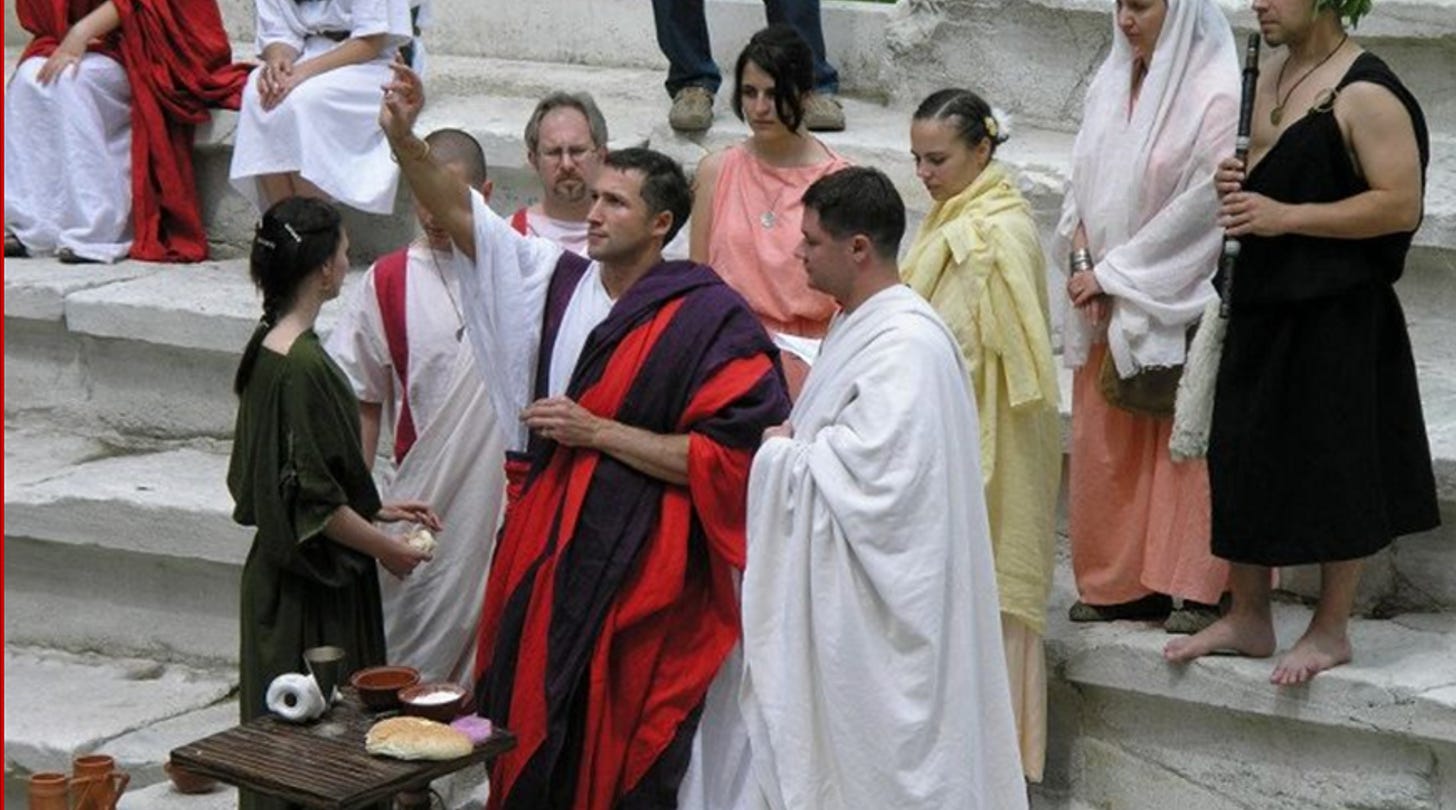READING: How Was It Þt Rome Conquered þe Mediterranean & Created Its Pax Romana, Anyway?
The ability—nay the eagerness—to turn conquered peoples into Romans was the key:
Arthur Eckstein (2006): Mediterranean Anarchy, Interstate War, & the Rise of Rome (Berkeley: University of California Press): ‘The fundamental question is not why Roman society was militaristic and often at war, but why the Roman city-state was able to create a very large and durable territorial polity when so many other city-states failed at that task…. It is not stern militarism but Rome’s ability to assimilate outsiders and to create a large and stable territorial hegemony that makes Rome stand out from other city-states. The norm in the ancient world was that large territorial states were created by kings…. Yet the premodern territorial states created by kings… were themselves inherently fragile… rest[ing] primarily upon the personal capabilities of the individual rulers…. Here, too, Rome was exceptional… not primarily the work of single titanic personalities, nor… as fragile as… dynastic empires….
To understand the Roman ability to integrate… one starts from the fact that the societies of central Italy were more open to immigration…. Commercium, conubium, and migratio…. Two concepts—municipium and civitas sine suffragio—dominated the Roman decisions after the Latin War… Rome would have available the fighting power of the Latin[s]… if they could be controlled and conciliated…. As a result of the reorganization of the 330s… Rome became the largest city-state in the ancient world in terms of citizen population…. The Roman development of an idea of citizenship divorced from ethnicity and/or geographic location…. This gave Rome the exceptional advantages in scale of resources… against large but fragile dynastic empires, or against small and hence limited city-states or mere tribal groupings….
From those exceptional advantages… hegemony emerged…. [Rome had an] intensely militaristic culture… constantly expanding definition of security… increasingly large ambitions. Rome was indeed like this…. But… most ancient states… were also like this…. What, then, explains Rome’s exceptional success? Most ancient states were also fragile—even if powerful…. Rome… after -338 simply did not suffer from the fragilities…. It is this… that permitted Rome not merely to survive in its exceptionally harsh environment but to prevail over it…
Rome after 340-338 replaced ethnicity and geographical location as the basis of membership in the polity with a ladder of legal status-groups not tied to either…. non-Roman allies (the socii), halfway citizens (the cives sine suffagio), full citizens (cives)…. the Romans were… generous in allowing non-Roman individuals and even (very occasionally) whole non-Roman polities to climb up this status hierarchy, Rome gained an enhanced capacity to win loyalty…. The capacity for inclusion and integration…. The rewards Rome was culturally and politically capable of dispensing… local peace… [and] the inclusion of local elites in the Roman state were much greater than any state in Greece could ever offer…. It was the system of inclusion, which was ultimately a diplomatic and political skill… that made Rome potentially the most powerful state in the ancient Mediterranean…
<https://archive.org/details/mediterraneanana0000ecks/mode/1up>






This is fundamentally why the loss of the Socii in the Social War to the Optimates was so damaging. Although the next administration ended up giving the Socii the citizenship they'd demanded, the aristocratic opposition to expansion of citizenship started feeling like they could get away with anything -- following which the Republic degenerated in a succession of military coups, starting with Sulla's and capped by Julius Caesar's. Having lost its fundamental democratic basis, Roman power proceeded to collapse over the next 100 years in internal wars.